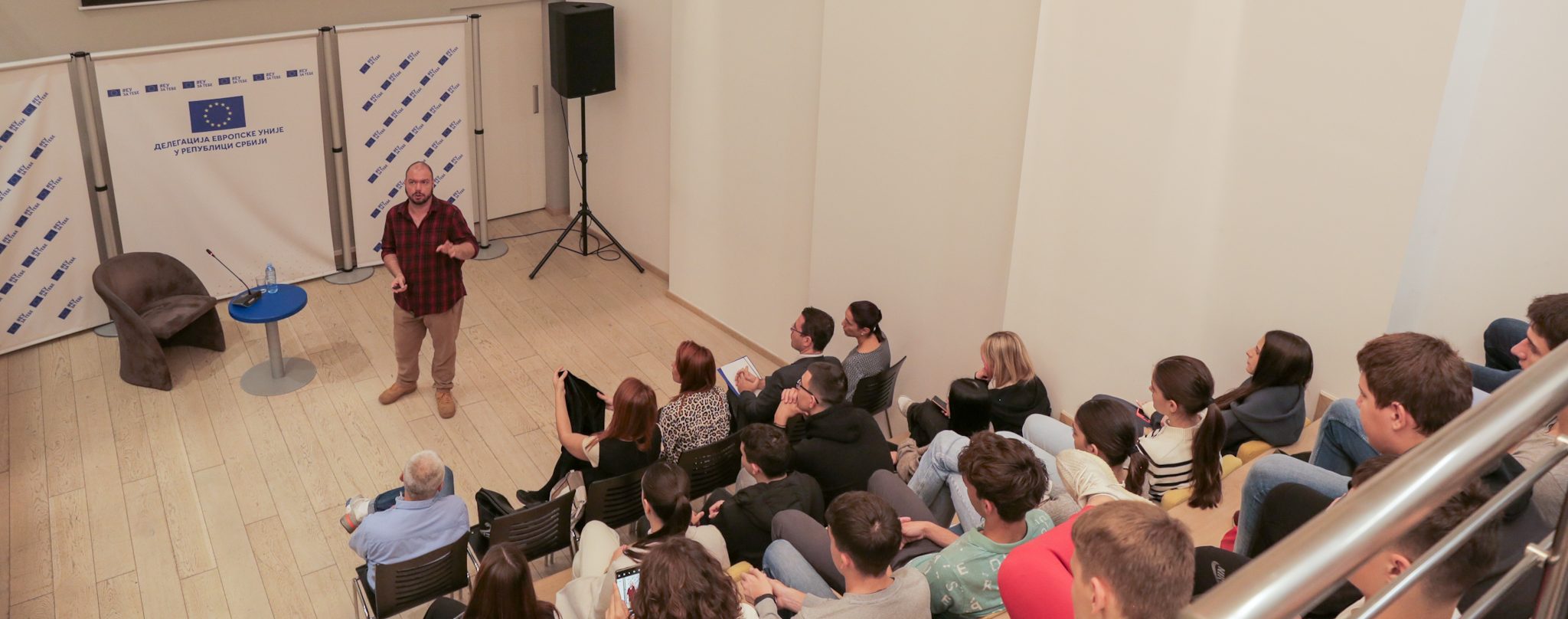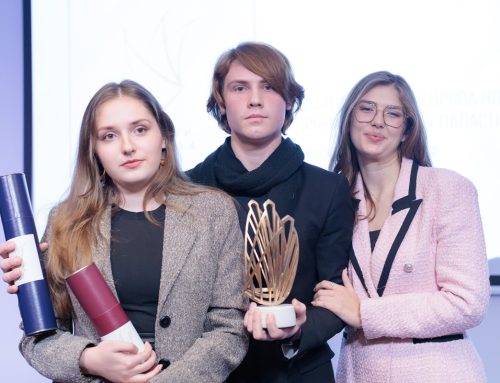Influencers have a significant influence on young people, but youngsters think carefully about whether to trust them.
Today, more than 40 students from three high schools in Belgrade gained a new perspective on the media through a media literacy workshop at the EU Info Center. Despite being born in the digital age, these young students learned about how the media conveys messages to them and how to distinguish between the messages sent by the influencers they follow on social networks.
The media shapes its messages to attract as many viewers, listeners, and followers as possible, and to generate more clicks on their news. However, media content that lacks verified information, educational value, or entertainment that is not sensational should not be trusted, as students from the Third Belgrade High School, Law and Business School, and Artimedia High School learned.
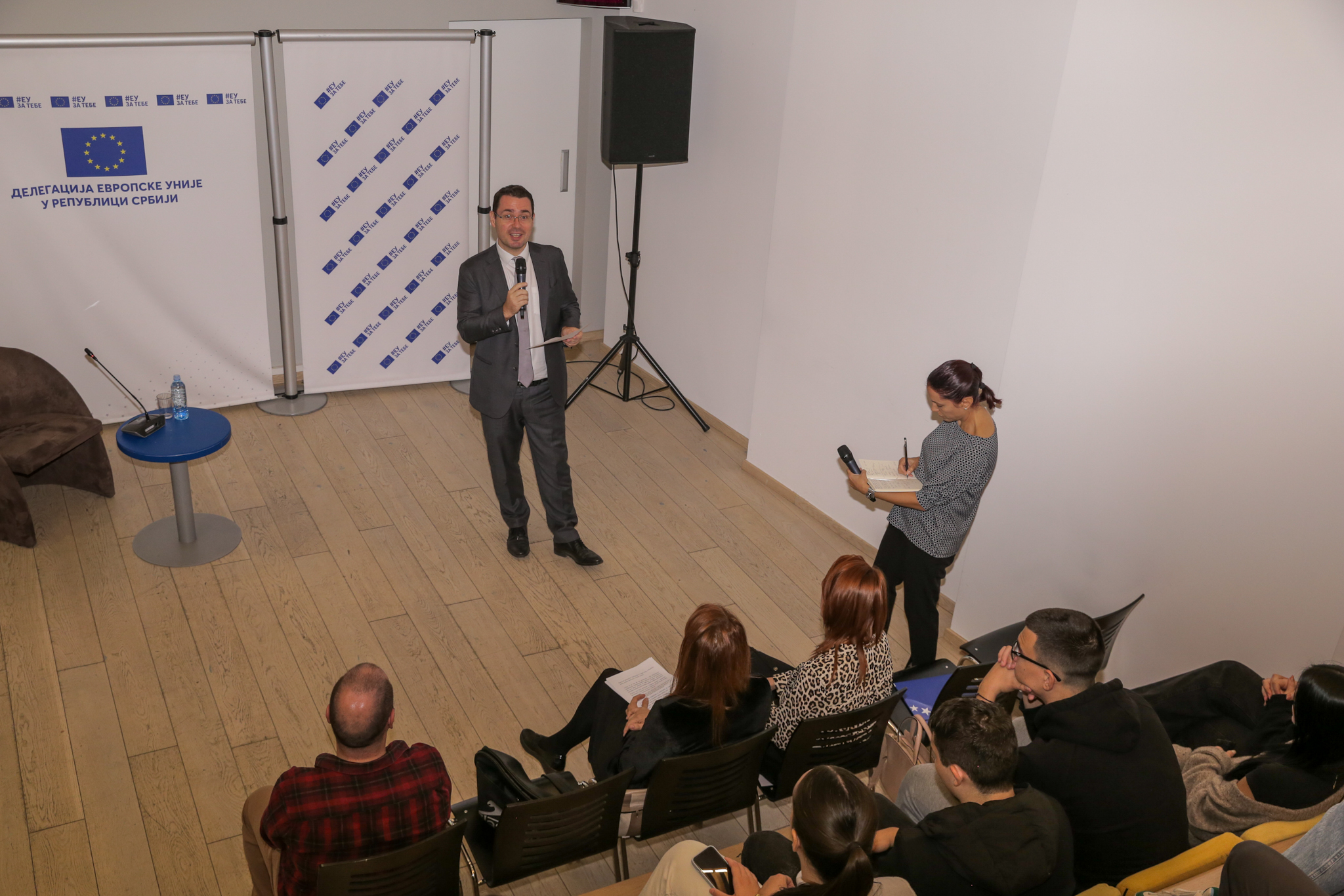
“Media literacy nurtures critical thinking skills. It encourages you to question what you see, hear, and read and to dig deeper, asking, ‘Is this information reliable?'”, stated by Manuel Munteanu, the head of Information, Communication, and Media, and deputy head of the political section of the EU Delegation in Serbia.
The EU strongly protects freedom of expression and at the same time strongly fights disinformation because, while everyone has the right to his or her own opinion, not everyone is entitled to have his or her own facts, Munteanu added.
“As Serbia progresses toward EU membership, it is vital for you, the younger generation, to be well-informed and critically aware. You are not just the future of Serbia but the future of the European Union. By developing media literacy skills, you are shaping a brighter, more informed, and democratic future for all of us,” said the Head of Information of the EU Delegation to the students.

Media literacy is important for both Serbia and the EU, as agreed upon by Maja Zarić from the Ministry of Information and Telecommunications. The EU and the Ministry have created the Media Literacy Manual for pre-university teaching to promote it.
“When we talk about media literacy, we are also referring to new media, apart from the traditional ones. This is the first time young people can point out new trends to the older generations, offering an opportunity for cooperation,” added Maja Zarić.
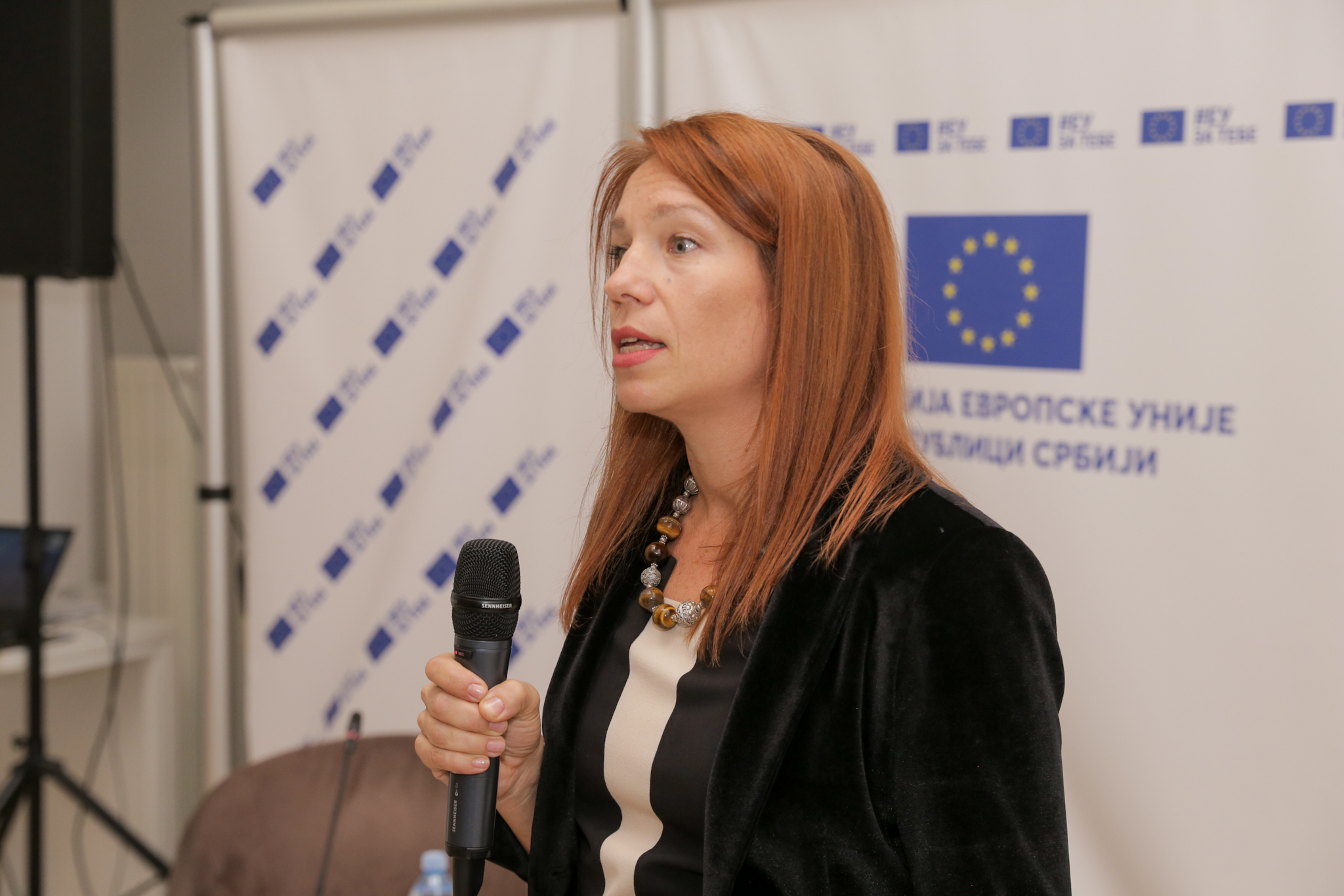
Media Literacy in School Publication
On its European journey, Serbia is aligning its media laws and regulations with EU.
The media possesses great power and, in some way, governs the world, according to journalism professor Nemanja Rašić.
“The media can create a public image, shift focus for someone’s benefit or harm. That’s why it’s important for us to know how to watch and listen to the media and understand the message it conveys,” emphasised the professor of journalism.
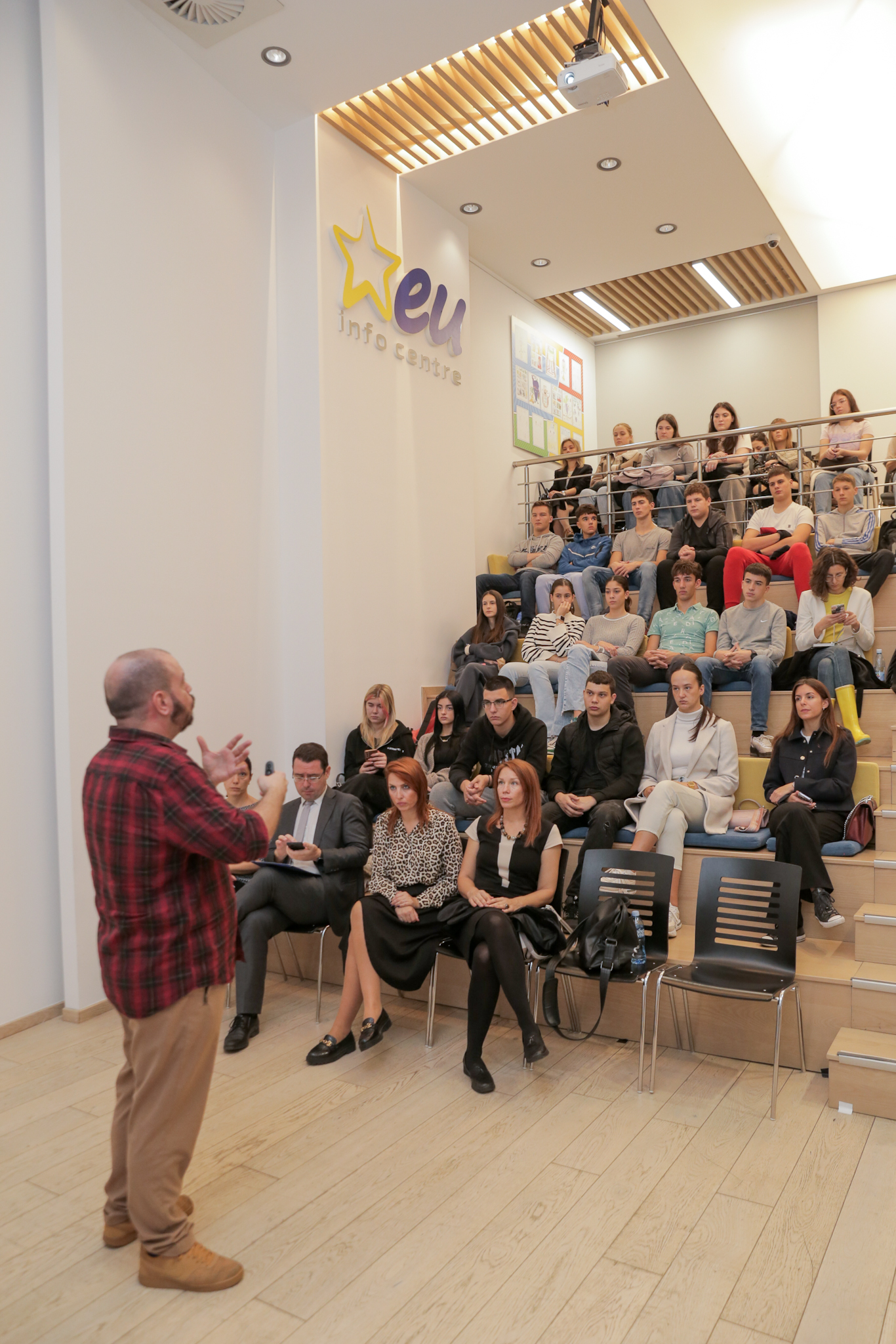
The media literacy workshop at the EU Info Center is part of Media Literacy Week. Apart from Belgrade, workshops on media literacy were also conducted at the EU Info Point in Niš. In Bečej, the workshop was organized by the EU Info Point Novi Sad.
The European Union is one of the leaders in the fight against fake news and for credible media. Through various projects and collaboration with interested parties and the public, the EU supports a higher level of media and information literacy in Serbia. Ensuring that citizens have access to accurate information is fundamental to building a fair and functional society.

